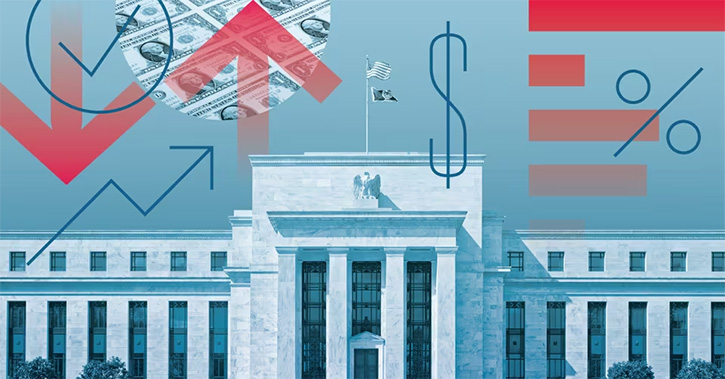Jeremy Glaser: For Morningstar, I'm Jeremy Glaser. Chinese search giant Baidu has gotten itself in some hot water recently with regulators over some healthcare advertisements. I'm here with Matt Coffina, the editor of our StockInvestor newsletter, for his take.
Matt, thanks for joining me.
Matt Coffina: Good to be here, Jeremy.
Glaser: So, let's start with this dispute that the regulators had with Baidu. What kind of ads were they hosting that got them into trouble?
Coffina: It's really an unfortunate situation. So, there was a college student in China who had a rare form of cancer. He had tried a variety of traditional treatments, none of which were effective. So, he went on Baidu, searched for alternative treatments and he found a military hospital that was advertising an immunotherapy treatment for cancer. I think it was actually Merck's Keytruda, from what I've heard.
So, he paid maybe somewhere around $30,000 for this treatment at the military hospital. It wasn't effective. This college student ended up dying and he ended up posting on social media along the way basically complaining about Baidu saying that they had some part in defrauding him basically by allowing this military hospital to advertise an ineffective treatment.
I think it's a moral gray area to be sure. The hospital had all the necessary licenses but it actually was outsourcing this immunotherapy program to a third party, a private healthcare provider. So, Baidu verified the license of the hospital, but I don't know that it knew about the relationship with the private third party. The regulations in China have been very not clear about exactly what you can say and not say in an advertisement.
So, Baidu, to some extent, it deserves some criticism and to some extent I think it's been a little bit of a scapegoat for just a poorly regulated healthcare environment in China in general. I mean, you could say Keytruda is advertised in the U.S. I'm sure there's patients for whom it's not effective and that's very unfortunate. But in the U.S. you probably wouldn't blame Google. Google is a lot more careful I think about what kind of advertisements they host versus Baidu. So, it's an unfortunate situation and Baidu bears some of the blame and they have also just been in the spotlight negatively.
Glaser: So, what change has the regulators have asked them to make and how will that impact the business?
Coffina: Sure. So, this investigation concluded with record speed and about a week from when the controversy started till regulators coming back with demands for Baidu, it was about a week. And some of the requirements that they want is, for one thing, Baidu has to more clearly label advertisements. They did have a little line in gray text that said "a promoted listing." But they want to make it very clear what's an ad, what's an organic search result. They want Baidu to also incorporate some information about the credibility of the advertiser when ranking search results. So, they can't just put whoever paid them the most at the top of the listing. They have to consider whether it's a credible advertiser. They don't want more than 30% of a webpage to be ads. So, you need 70% organic listings, 30% ads at most. They want Baidu to set up a fund to compensate victims of fraudulent advertising. So, all of these things Baidu is planning to do and they have to do it by the end of the month.
I think it remains to be seen how meaningful or not they are going to be to Baidu's business. So, we're really only going to find that out as Baidu starts to report results. I mean, I certainly expect it to weigh on the growth rate. It will create some incremental expenses.
On the other hand, it's not clear that some of these changes are really even changes. Again, Baidu had verified that the hospital was licensed appropriately. It's not clear that even this ad would have been prevented by the new restrictions, changes like 30% of web results have to be ads, well, you can just lengthen the webpage so you can get more ads on there. So, I think there's some element of this that's just trying to cover your butts a little bit and make a good show of it and I think it will weigh on their growth rate, but the total impact, we're going to have to wait and see.
Glaser: Taking a step back then does this make you rethink kind of the relationship between Chinese internet companies and regulators? Does this give you any pause about the regulatory environment?
Coffina: Sure. We always knew that investing in China was dangerous. It comes with all sorts of risk that you don't have to worry about when you're investing in the U.S. and I would say those risks have only been getting greater over time. So, you have macroeconomic risks. The health of the Chinese economy is certainly slowing down a lot. Our analysts are concerned about debt overhang and excess capacity and all of these sorts of macro risks in China. Then on the regulatory front, you always knew that the government could come in and do whatever they want. They could really mess with Baidu if they chose to. I don't think that this is a situation clearly of the government messing with them that they initially have it in for Baidu.
But that said, we definitely need to be wary of these red flags. What if regulators had come back and said, you can't advertise healthcare companies at all. That might be 20% or 30% of Baidu's business. They didn't come in and say that. But we have to be aware of the fact that they could have and what is Baidu really going to do about it except for comply. There have been other red flags. Recently, the government has indicated they want to take a 1% stake and a board seat in all of major internet companies. Baidu itself has created some red flags. For example, management has proposed to buy out their online video subsidiary. I never like to see this kind of inside dealing. It's one reason that I've avoided Alibaba and favored Baidu. I think they have fewer related party transactions. But the fact that they even proposed that is a little bit of a red flag.
So, I think investors need to be very cautious and you really need to see a lot of upside to be worth the trouble of investing in China. That said, I still see that upside today in Baidu. The stock is trading for about 15 times core search earnings. They've been spending a lot of money in noncore areas, things like their online to offline initiative, online video. They have a lot of these noncore money-losing ventures. But if you sort of strip those out core search earnings, it's only trading at about 15% times earnings and the underlying growth rate should still be somewhere in the 20s, around 20% a year, again except for this headwind that they are going to face now this year because of this scandal. So, it's a complicated story. It's not exactly a pound-the-table kind of situation. But for risk-tolerant investors, who see a significant upside and are willing to take on these significant risks, I think it's still a worthwhile holding.
Glaser: Matt, thanks for the update.
Coffina: Thanks for having me.
Glaser: For Morningstar, I'm Jeremy Glaser. Thanks for watching.






















